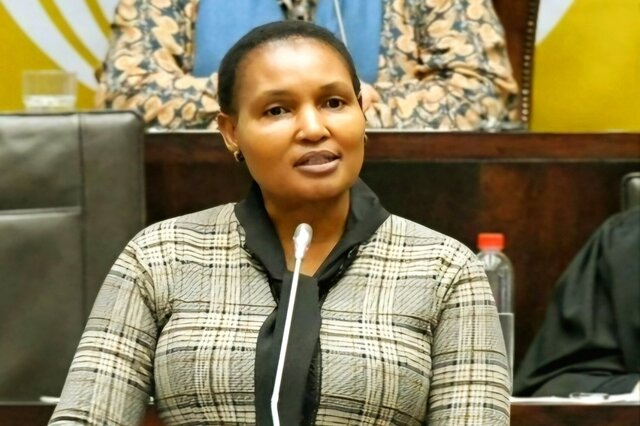Cape Town — The Minister of Cooperative Governance and Traditional Affairs (COGTA), Velenkosini Hlabisa has announced that the foodborne illnesses have been classified as a national disaster.
Speaking during a media briefing, Minister Hlabisa and Justice Minister, Thembi Simelane, announced that the National Disaster Management Centre declared foodborne illnesses a national disaster after an increasingly alarming number of food-related sicknesses and deaths have occurred throughout the country.
“The National Disaster Management Centre has, in terms of Section 23 of the Disaster Management Act, section 57 of 2002, classified the foodborne diseases as a national disaster. In addition, the classification hereby encourages all organs of state, the private sector, and communities, to improve their practices of risk avoidance through the adherence to food safety, legislation standards and procedures,” Newzroom Afrika reported her saying.
[BREAKING] Disaster Management Centre classifies foodborne diseases as a national disaster.
Tune into Newzroom Africa DStv channel 405 for more. pic.twitter.com/yYT9bjjEKT
— Newzroom Afrika (@Newzroom405) November 21, 2024
As reported by eNCA, Minister Hlabisa stated that while foodborne illnesses have been classified as a national disaster, they have not been declared as such just yet as he outlined the government’s plans to curb further foodborne illnesses.
“The classification was done on Tuesday 19 November, not a declaration. The next step now, we are in the process of doing due consideration for the declaration of the disaster,” he said.
He said the classification would help activate all strictures and departments to take action against the challenges at hand and serve as a good base.
“If you want to escalate the response, you go to a declaration of a disaster [as] it has far-reaching implications because you need to mobilise soldiers, you need to go wild if you want to go to a state of disaster,” he added, saying COGTA was working towards a declaration of a national disaster.
Foodborne illnesses have been classified as a national disaster, But they have not yet been declared a national disaster. That’s according to Cogta Minister Velenkosini Hlabisa. #eNCA #AllAngles. #DStv403 pic.twitter.com/YDP96Ck3HJ
— eNCA (@eNCA) November 21, 2024
According to a statement, the classification serves to encourage individuals to comply with applicable business registration procedures and standards and recommends that national, provincial and municipal councils implement rehabilitation plans to deal with the effects of the disaster,
Simelane said the appointment of health experts to serve on the ministerial advisory committee would also be announced shortly, and medium to long-term prevention measures are also being developed.
“The directive to urgently report deaths of patients aged 12 and under will be swiftly implemented. This will help us to understand the burden of disease and the population at risk in real-time instead of waiting for a long period,” she said.
She explained that the regulations would be published based on the state of disaster declared by Minister Hlabisa.
She added that support would also be given to support townships and rural businesses by setting up a joint fund of R500 million. The departments are setting up guidelines and standard operating procedures regarding the utilisation and accountability of the fund.
The approved rural and township businesses will be supported by the fund to improve infrastructure, regulatory compliance and capacity building.
“The operational fund application and disbursement process will commence as soon as the registration process is completed and will be subjected to ongoing auditing processes as an early warning system against potential anomalies and fraudulent activities,” she said,
The qualifying criteria state the business must be run by a South African citizen and registered with the local municipality, while also having valid registration with SARS. She added that the registration of businesses is incredibly important.
Additionally, she appealed to members of the public not to disturb the process of registration by blocking shop owners from participating in the process, including conducting unlawful inspections by members of the public.
Follow African Insider on Facebook, Twitter and Instagram
Picture: X/@HouseofSimelane
For more African news, visit Africaninsider.com
Compiled by Matthew Petersen


